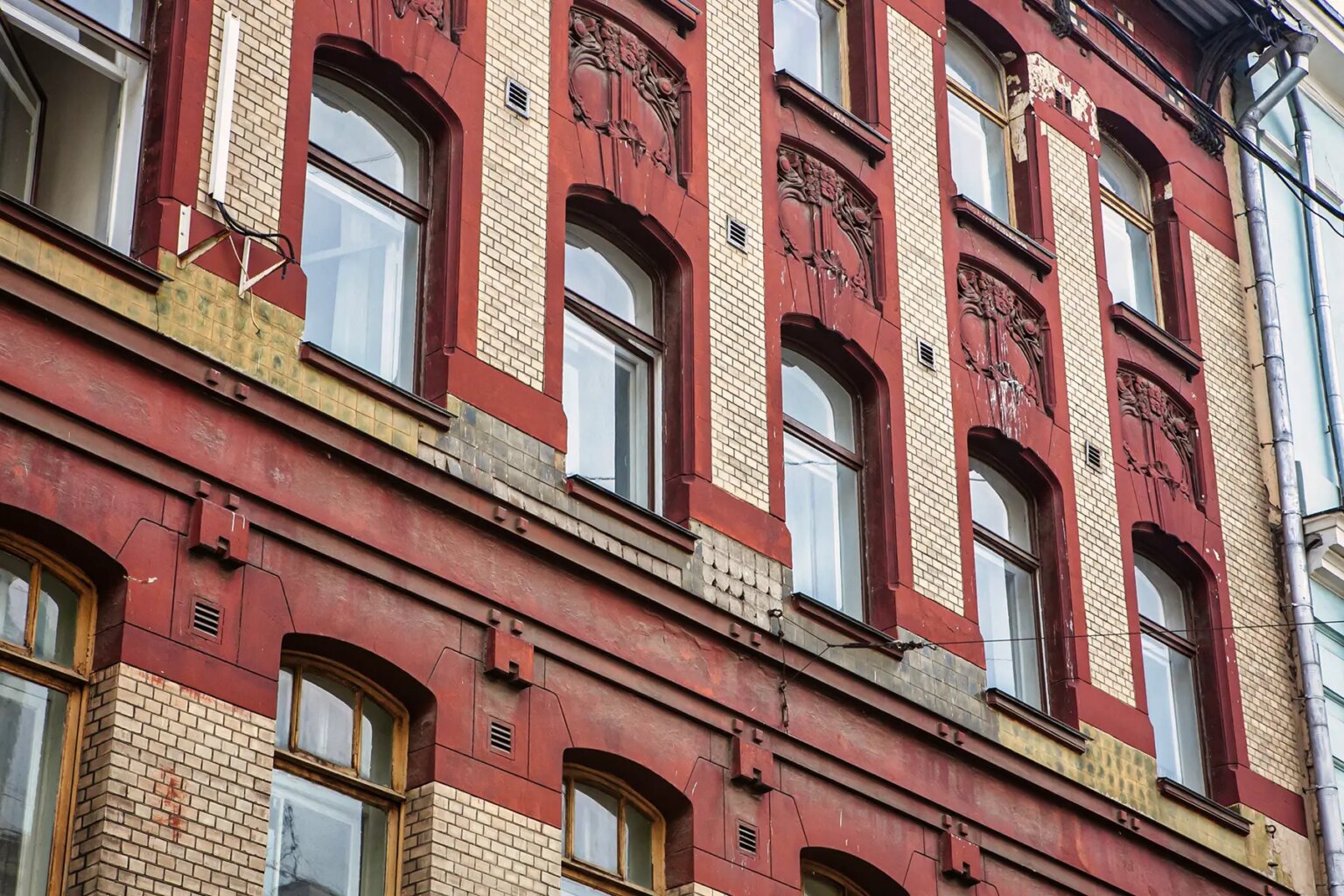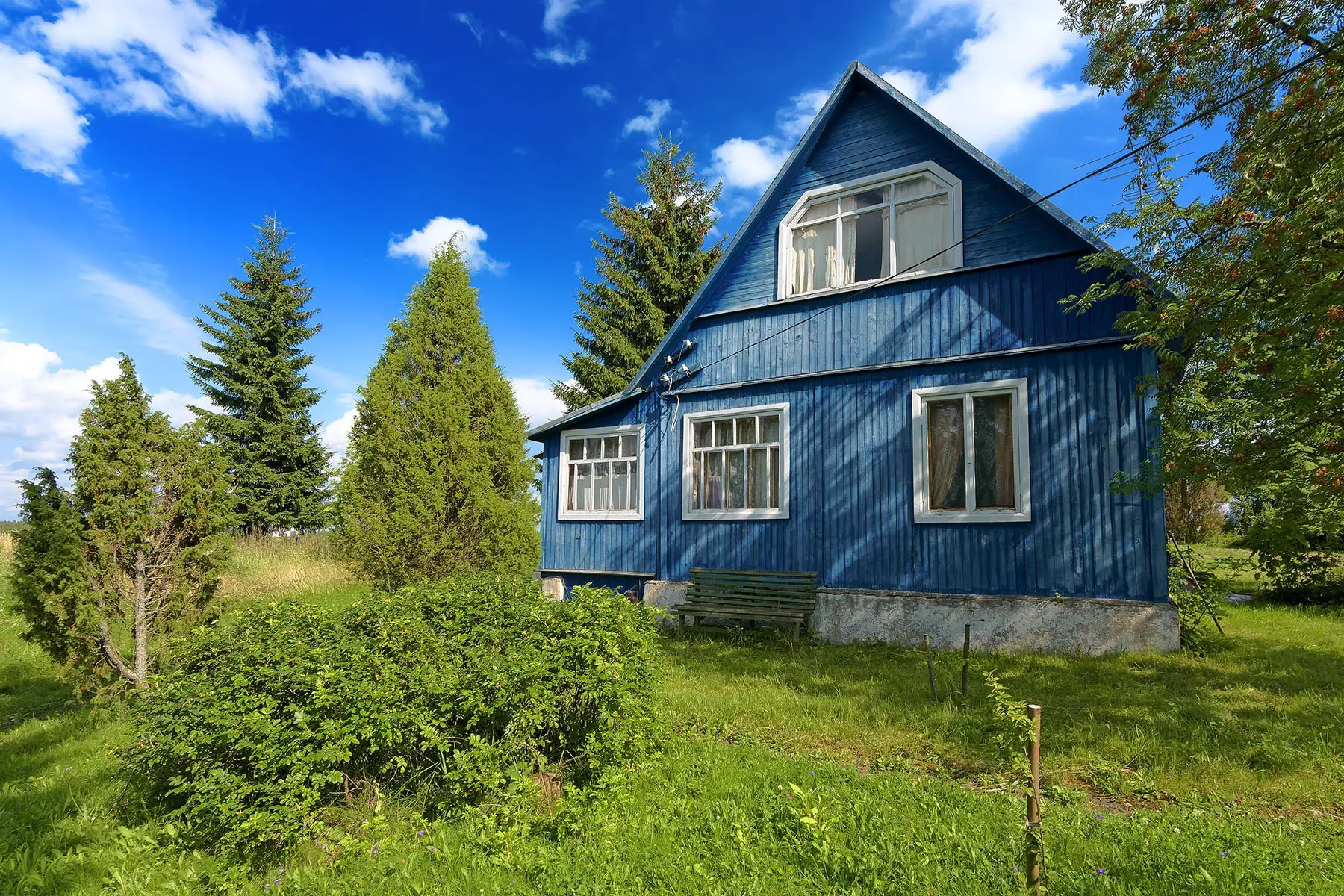Important notice from the Editor in Chief
Maintaining our Russian site is a delicate matter during the war. We have chosen to keep its content online to help our readers, but we cannot ensure that it is accurate and up to date. Our team endeavors to strike the right balance between giving information to those who need it, and respecting the gravity of the situation.
The Russian real estate market has a relatively short history. In the Soviet era, all properties were state-owned; people only had the right to use them with apartments allocated based on one’s place of work. As a result, options for moving were fairly limited. However, after the fall of the Soviet Union, the Russian real estate market emerged and Muscovites could privatize and subsequently sell and buy properties for the first time.
This guide to buying property in Russia includes the following topics:
- Is now a good time to buy property in Russia?
- Property prices in Russia
- Where to buy in Moscow?
- Central Moscow property
- Moscow outer districts
- Russian real estate agents
- How to buy Russian real estate
- Checking a property’s history
- Costs of buying Russian real estate
- Bank fees
- Depositary agreements
- Notarization
- The closing procedure on Russian real estate
Is now a good time to buy property in Russia?
The economic and political climate in Russia over the past few years with economic trade embargos after their invasions in Crimea and later, the rest of Ukraine, the crash of the Russian currency, high inflation rates, and high interest rates have all put the country into a recession. Inevitably this affected houses prices across the country, including property prices in Moscow.
On the surface, without inflation adjustments, Russia’s property market still appears to be growing, but in a report by Global Property Guide from 2015, the figures issued by the Federal State Statistics – Rosstat, actually showed a decline when taking inflation into account.
While this may sound bad for sellers who had previously enjoyed high demand, high property prices and plenty of buyers, the Russian housing market has slowed down.
Property prices in Russia
Moscow is a densely populated capital with over 12 million residents. The city is circular surrounded by four rings spanning from the Kremlin in the center to the Moscow Ring Road or MKAD that defines the city’s limit, with the exception of a few annexed territories.
Inside the rings, the city is divided into ten administrative divisions called okrugs, which in turn are subdivided into 123 districts.
Property prices for buying in Moscow are usually listed with a price per square meter in Roubles, and sometimes with a total property price. Recent figures from Numbeo put average prices for buying an apartment in Moscow at around 308,500 Roubles per square meter in the city center and 147,000 Rubbles outside of the city center.
If you’re buying property in Moscow, like most cities, location, size, and type of property will dictate the price and what you can afford. City center apartments in Moscow come at a premium price. Although, there are a number of areas outside of the city center that also demand a high price in wealthy districts near the Garden Ring.
Also, some of the modern developments with high-specs geared towards the luxury market and foreign investors will also be more expensive. For example, within the Central Administrative Okrug in areas like Presnensky District, also known as Presnya, as well as Sokol, luxury apartments can go for millions of Roubles.
Where to buy in Moscow?
Moscow is constantly plagued by traffic jams, so driving in Moscow can be a frustrating and long process, so when considering where to buy in Moscow, factoring in public transport links and commute times to work, school or socializing is vital.
The Moscow Metro, is one of the longest in the world with nearly 340 km of underground lines that services 203 stations as of 2016, so finding an area that has good links shouldn’t be difficult.
For many expats, buying a Moscow apartment in a central location within or a close proximity to the Central Administrative Okrug is preferable providing a minimal commute and all amenities.
Central Moscow property
Surrounding the Kremlin are a number of districts within the Central Administrative Okrug. Just like the rental market, areas around Tverskaya Street have the vibrant city right on their doorstep, but prices per square meter will be some of the highest in Moscow. Similarly, the areas of Arbat, Kropotkinskaya, Smolenskaya, and Patriarchy Ponds slightly further west, along with Chistye Prudy to the east will still deliver a central location.
Moscow outer districts
Buying property in Moscow outside of the central districts provides you with more options in terms of budget and types of property. Popular areas with an affluent clientele tend to be located in the west, southwest, and northwest of the city in areas such as the Sokol district, Shchukina, Voykovskaya, and Filakovsky, which all have plenty of green spaces and a choice of different types of properties.
Another area favored by those who want close proximity to the center, but more fresh air and quiet residential areas are located around the Sadovoye Koltso or Garden Ring Road and the Boulevard Ring Road, which are both former boundaries of the city. Tagansky district on the eastern side of the Garden Ring is an up-and-coming area that was traditionally working class, but business investment in the area has seen a number of modern residential developments being built.
For those moving to Russia with families, the Kuntsevo/Krylatskoye district west of the center near the MKAD is ideal with good access to the International School of Moscow and it is considered the most ecological area in the city. Leninsky Prospect to the south is also a popular residential area for expats as there are a number of excellent international and national schools.
Property in Moscow on the lower end of the price scale can be found to the east and south in the more industrialized districts. However, these areas will still provide good transport connections to the city and could mean you can afford more space yet still feel like you’re in the heart of the city. Seek local knowledge of a reputable Russian real estate agent in Moscow will help you to find a decent area.
Russian real estate agents
When it comes to buying property in Russia, a great deal of information on properties for sale is listed in public sources or available online and in different publications.
However, selecting the property and organizing a viewing, as well as determining which options are more or less attractive requires experience, which is why it’s advisable to use a reputable Russian real estate agent. They will be able to provide the most complete and current information on all properties on the market, including the ones that are not publicly listed and provide invaluable local knowledge. In addition, they can assist with carrying out due diligence on a property and structuring a safe transaction.
You should always use a real estate broker or a lawyer with Russian real estate experience to represent your interests during your transaction.
How to buy Russian real estate
Once you’ve fathomed out which areas tick all your boxes and found a property, it’s time to start thinking about the practicalities of buying in Moscow.
Checking a property’s history
The real estate laws are continuously changing so ensure careful research is carried out on the property history. In some instances, your ownership rights may be challenged by previous owners or people formally registered in the apartment. Usually, such risks can be eliminated if determined before the real estate transaction.
Costs of buying Russian real estate
It is the norm in Moscow for a buyer to cover all closing expenses, including notary fees, state registration fees, and bank expenses. Also, if using a real estate agent to find your property and/or negotiate your deal, you will be charged a brokerage fee. This includes property search, property and seller background check, review of the ownership documents history and the “rights of use” check, arranging the deal closing, and the supervision of the final property transfer to the new buyer. The brokerage fee is usually calculated as a percentage of the sale price ranging from 6 percent for cheaper properties to 3 percent for more expensive properties.
The seller’s brokerage fee covers property evaluation and appraisal, property marketing and arranging property viewings, negotiating with potential clients, preparing the complete set of necessary documents for the transaction, arranging the deal closing, and supervising the final property transfer.
Bank fees
The majority of real estate transactions are made in cash and sale-purchase transactions always take place in a Russian bank with the bank’s safety deposit boxes acting as an escrow account to guarantee buyers and sellers the payment is made upon the final ownership transfer. Full funds are deposited and only released to the seller when the complete package of registered documents under the buyer’s name is presented.
Depositary agreements
Most Russian real estate deals extend over a period of five weeks to several months, requiring collection of various documents from state institutions and the buyer may need to secure finances or the seller may need to find an alternative residence. For this reason, a preliminary or depository agreement is made between the buyer and the seller detailing the terms and conditions of the future sale and what necessary from both parties.
Upon signing the preliminary agreement, which can be an advance payment (Avans) or property deposit (Zadatok), buyers pay a deposit to take the property off the market while the required documents are assembled and the close of sale is made. The deposit amount isn’t a set percentage, but usually a round figure agreed by both parties. Always ensure you use an experienced and reliable agent or an experienced Russian real estate lawyer to draft a depositary or preliminary agreement and perform the due diligence on the property.
Notarization
Notarization of a sale-purchase isn’t required by law, but it is advised as it is the equivalent of buying title insurance. Notary fees vary depending on the sale price of the property, ranging from 0.7% for more expensive properties to 1.5% for less expensive ones.
The closing procedure on Russian real estate
Once due diligence and paperwork is complete, the closing procedure begins, where funds are deposited in the bank and both parties sign the sale-purchase agreement. The sale agreement is then submitted for state registration (propiska).
On the property transfer date, the parties need to sign an Acceptance Act, usually at the bank, notary or real estate office. This certifies that the property is transferred to the buyer in the agreed condition.
Registration of the sale-purchase agreement with the Federal Registration Service for Moscow makes the transfer of property rights official. This usually takes 30 calendar days to complete, but this can be expedited if you’re using a mortgage to finance the property.




